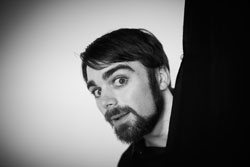The radiant life of Marie Curie
Driving through an active war zone to save wounded soldiers, surviving a husband killed in a tragic accident, becoming the first person to win two Nobel prizes, and being one of the most respected scientists of all time.
An interesting resume, no?
Come with us as we explore the experiences that made Marie Curie’s life one of the most remarkable of the 20th century.
A life of firsts
In 1867, a 24-year-old Polish girl named Maria Skłodowska moved to Paris to study at the Sorbonne. She’d graduated high school with honors at age 15, but she’d worked to support her sister’s schooling for years afterward.
At long last, it was her turn.
After arriving in Paris, she started going by Marie and became an outstanding student in physics and math. She met physicist Pierre Curie in 1894 and they married in 1895.
Their joint research would rock the scientific world.
In a former storeroom, Marie laboriously tested and confirmed a discovery by a physicist named Becquerel that the element uranium constantly emitted rays that significantly but invisibly affected the environment around them. She and Pierre became obsessed with finding out if any other substances emitted these rays.
Years of research led to their discovery of two new elements. They named one polonium after Marie’s homeland and the other radium. Their efforts were the first extensive research of radioactivity – a word they’re credited with coining.
This work earned two Nobel prizes and made Marie Curie the first woman to earn a PhD from the Sorbonne.
The first Nobel was awarded in 1903, and the Curies shared it with Becquerel for discovering radiation. Marie was the first woman to receive the Nobel Prize. The second came in 1911 for the discovery of radium – five years after Pierre had been run over and killed by a horse-drawn cart in the streets of Paris.
Saving lives on the battlefield
After Germany declared war on France in 1914, Curie vowed to help her adopted home country.
Though she had only lectured about X-rays as the first woman to teach at the Sorbonne, she knew that bringing them to battlefields would save lives. They’d allow doctors to diagnose and treat injuries more quickly and with more precision.
She created and led a unit of the Red Cross with the assistance of her 17-year-old daughter that developed mobile X-ray labs in loaned vehicles. They traveled into WWI war zones to assist doctors, helping alleviate suffering and saving many lives.
A radiant life
Though she’d die in 1934 from a rare disease brought on by her long exposure to radioactive substances without proper protection, Curie’s tireless work in the field led to some of the most important scientific discoveries of the last century. Her endeavors at the Radium Institute (now the Curie Institute) in Paris following WWI had long-lasting impacts on research into how radiation could be used in medical, commercial, and defense spheres.
Even long after her death, Curie broke barriers no woman ever had. Sixty years following her passing, she became the first woman buried in Paris‘ Panthéon, a national mausoleum where the likes of Victor Hugo, Voltaire, and Jean-Jacques Rousseau also lie.
Vocabulary
radiant – strahlend
war zone – Kriegsgebiet
wounded soldiers – verwundete Soldaten
survive – überleben
Nobel prize – Nobelpreis
remarkable – bemerkenswert
a life of firsts – der Lebensweg der Ersten
at long last – endlich
to be one‘s turn – an der Reihe sein
with honors – mit Auszeichnungen
outstanding student – ausgezeichnete Studentin
storeroom – Abstellraum, Lagerraum
laboriously – mühevoll und aufwändig
emit rays – Strahlen ausstoßen, Strahlen emittieren
invisibly effect sth. – unsichtbar auf etw. auswirken
become obsessed with – besessen sein für etwas
most likely – höchst wahrscheinlich
led (lead/led/led) to discovery – führte zur Entdeckung
polonium – Polonium
radium – Radium
extensive research – umfangreiche Forschung
credited with coining – einen Begriff prägen
PhD – Promotion, Doktortitel
horse-drawn cart – Pferdewagen
vow – schwören, etw. geloben
lecture about – dozieren über
treat injuries – Verletzungen behandeln
loaned vehicles – Mietwagen, geliehene Fahrzeuge
alleviate suffering – Leiden lindern
rare disease – seltene Krankheit
exposure to radioactive substances – radioaktiven Substanzen ausgesetzt sein
tireless work – unermüdlicher Einsatz
endeavors – Bemühungen, Bestrebungen
brake barriers (broke – broken) – Barrieren durchbrechen
following her passing – nach ihrem Tod
Excite Your Senses

On our YouTube channel, you can follow along as a native speaker reads this month’s Learning Nugget accompanied by music and pictures.
